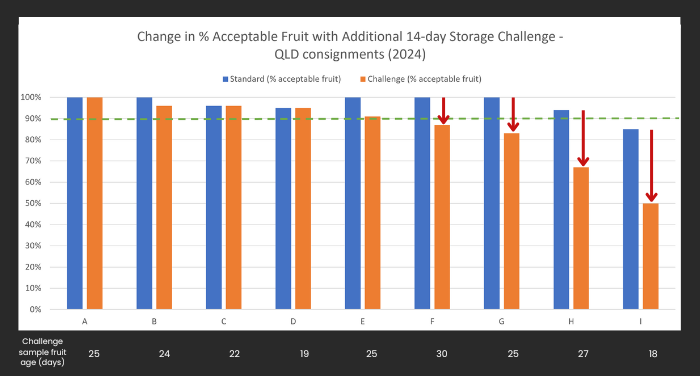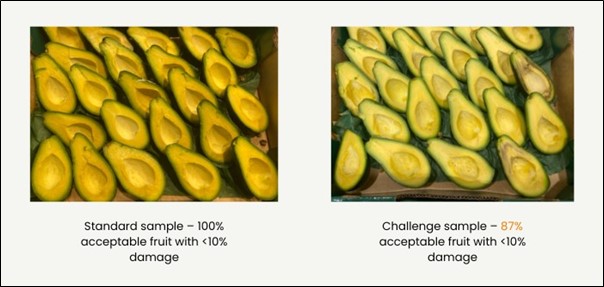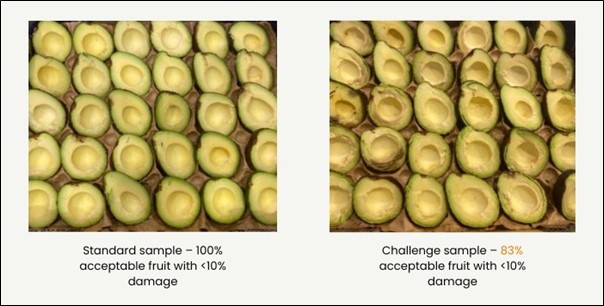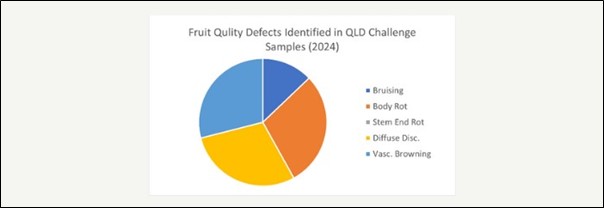Domestic Supply Chain Monitoring of QLD avos in full swing for 2024
As part of the Monitoring avocado supply chain quality (AV22011) project the monitoring of Queensland avocado domestic consignments is underway and will continue as the season progresses. Samples are being collected from wholesalers and ripening distribution centres, and assessed following a normal commercial ripening program (Standard sample), as well as following a 14-day storage challenge (Challenge sample). Results from this monitoring are presented to the supplying packhouse, and used to evaluate fruit quality under normal supply conditions, as well as under the upper limit of best practice ‘time in the supply chain’ conditions.
To recap – two (2) avocado tray samples are taken from each consignment to measure quality and fruit robustness. Both standard and challenge trays undergo an external quality assessment at collection. The first sample tray (standard) is collected after commercial ripening, kept at 20oC until med-soft ripe when it is assessed for internal defects. The second sample tray (challenge) undergoes a challenge fruit quality assessment, where fruit are stored for 14 days under recommended storage conditions. Fruit are then commercially ripened, kept at 20oC until med-soft ripe when it is assessed for internal defects.
A total of 9 consignments from Queensland have been assessed thus far in 2024. Overall, 5 out of 9 (56%) challenge samples (orange bars) could achieve >90% acceptable fruit (<10% defects). This demonstrates that the majority of consignments had consistent fruit quality and good fruit robustness. However, 44% of samples could not hold up to the challenge treatment, producing significantly worse quality compared to the standard. In these samples the percentage of acceptable fruit dropped by 13%, 17%, 27% and 35% respectively. This is important feedback for packers and their suppliers.



To date, the majority of identified defects in Queensland challenge samples include body rots, diffuse discolouration, vascular browning, and minor quantities of bruising. Understanding a batch level of fruit robustness and managing this risk is crucial for delivering consistent fruit quality particularly in longer domestic supply chains and in export.

Monitoring of Queensland avocado consignments will continue as the season progresses and timely updates on quality will be provided. Key resources available to assist in identifying opportunities for quality improvements relating to monitoring reports from industry and customers include the Avocado Fruit Quality Problem Solver, the Australian Avocado Supply Chain Best Practice Guide, the Traceback Self Assessment guide and the Avocado Problem Solver Field Guide.
For further information on supply chain monitoring results, contact John Agnew from the Queensland Department of Agriculture and Fisheries (john.agnew@daf.qld.gov.au) or Anne Larard (idm@avocado.org.au) from Avocados Australia.
This article appears as part of the 14 June 2024 issue of Guacamole, AAL’s enewsletter.
Date Published: 14/06/2024